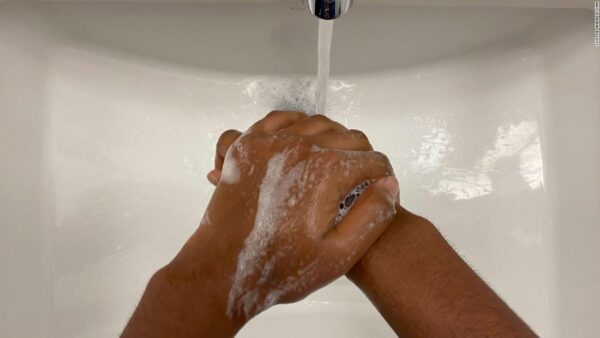Scientists are struggling to find a vaccine for the deadly coronavirus which continues to spread across the world.
But the World Health Organization says the best way to protect yourself is by frequently and properly washing your hands.
The spread of the novel Coronavirus (COVID-19) has taken the world by storm with the virus now a global public health emergency.
COVID-19 has infected thousands of people so far with deaths also exceeding two thousand both within China the origin of the virus and outside the Asian country.
The WHO has now issued out tips to help people protect themselves against the virus.
Wash your hands frequently
Regularly and thoroughly clean your hands with an alcohol-based hand. Rub or wash them with soap and water.
But how do you wash your hands properly?
- Wet your hands with clean, running water. Then, turn off the tap and soap up your hands. Soap is more effective at removing germs than water alone.
- Work the soap into a lather by rubbing your hands together. Lather soap onto the backs of your hands, in between your fingers and under your nails. Lathering causes friction, which strips pesky germs and dirt from the skin. Be sure to get into the nooks and crannies, too — germs lurk there.
- Scrub your hands for at least 20 seconds. Sing or hum “Happy Birthday” twice through to keep time. There’s no magic number, but washing your hands for at least 20 seconds has been shown to remove more microbes than washing for shorter periods does. Singing “Happy Birthday” is just a fun way to make sure you’re scrubbing long enough.
-
Rinse your hands well under clean, running water. You’ve lifted the germs from your hands. Clean water flushes them off.
- Dry your hands using a clean towel or air-dry them (or a bit of both). Wet hands easily transfer viruses. Drying them off lessens that risk.
But there are other tips needed to keep you safe:
Maintain social distancing
Maintain at least one metre (three feet) distance between yourself and anyone who is coughing or sneezing. When someone coughs or sneezes they spray small liquid droplets from their nose or mouth which may contain the virus.
If you are too close, you can breathe in the droplets, including the COVID-19 virus if the person coughing has the disease
Avoid touching eyes, nose and mouth
Hands touch many surfaces and can pick up viruses. Once contaminated, hands can transfer the virus to your eyes, nose or mouth. From there, the virus can enter your body and can make you sick.
Practice respiratory hygiene
Make sure you and the people around you follow good respiratory hygiene. This means covering your mouth and nose with your bent elbow or tissue when you cough or sneeze.
Then dispose of the used tissue immediately. Droplets spread the virus. By following good respiratory hygiene you protect the people around you from viruses such as cold, flu and COVID-19.
If you have fever, cough and difficulty breathing, seek medical care early
Stay home if you feel unwell. If you have a fever, cough and difficulty breathing, seek medical attention and call in advance
Follow the directions of your local health authority
National and local authorities will have the most up to date information on the situation in your area. Calling in advance will allow your health care provider to quickly direct you to the right health facility. This will also protect you and help prevent the spread of viruses and other infections
Stay informed and follow the advice given by your healthcare provide
Stay informed on the latest developments about COVID-19. Follow advice given by your healthcare provider, your national and local public health authority or your employer on how to protect yourself and others from COVID-19.
National and local authorities will have the most up to date information on whether COVID-19 is spreading in your area. They are best placed to advise on what people in your area should be doing to protect themselves.
WHO advises that you stay at home if you begin to feel unwell, even with mild symptoms such as headache and a slight runny nose, until you recover.
Avoiding contact with others and visits to medical facilities will allow these facilities to operate more effectively and help protect you and others from possible COVID-19 and other viruses.
Meanwhile for those who don’t now the symptoms, victims of coronavirus often suffer from respiratory illness and this new strain of coronavirus was not previously identified in humans.
Source: Africafeeds.com



